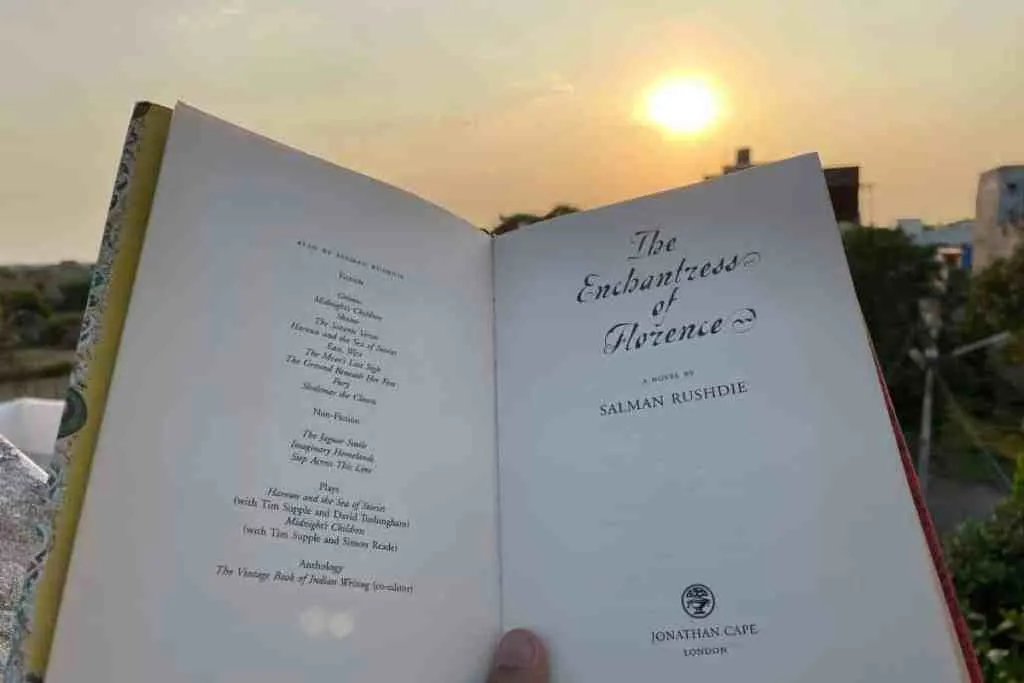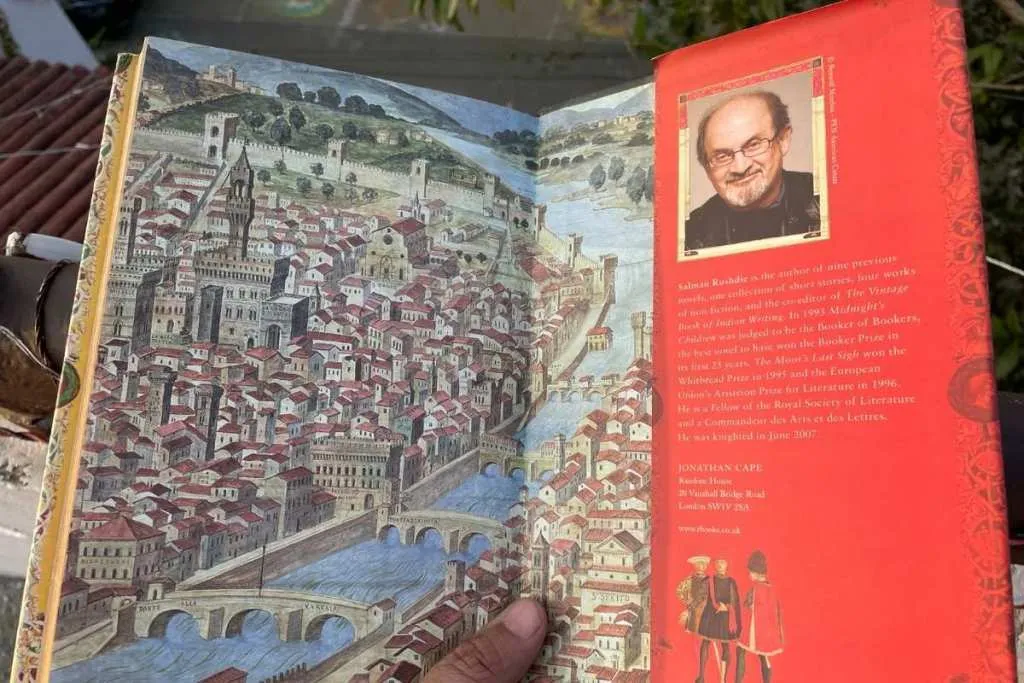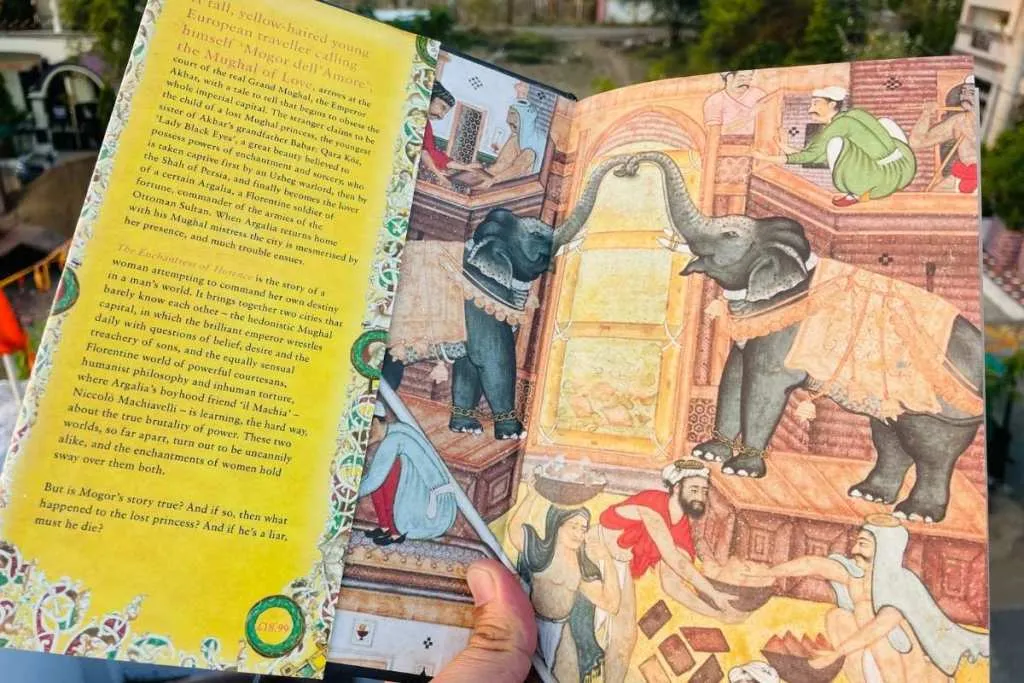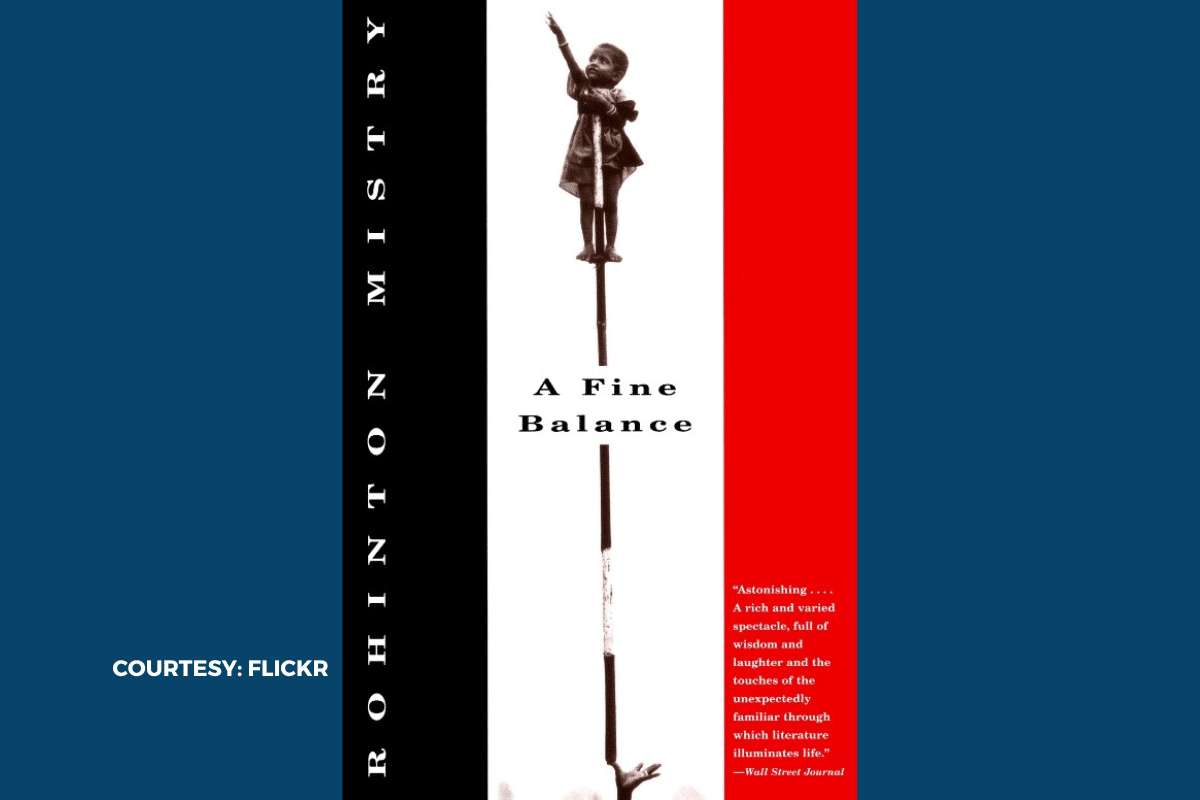The Enchantress of Florence by Salman Rushdie, Book Review | There is always this moment of awe when you read Salman Rushdie‘s literature. In particular, this book happens all the time. As exquisite as the cover, the book also tells a tail of remarkable passion. And, it could have only been written by Rushdie. His credentials as a history graduate, and a proclaimed ‘magical realism’ genre author, give him great credibility to produce a novel that is both fable and history.

He calls his book to be one of the most researched books, and the bibliography at the end of the book goes on for eight pages.
The great Mughal emperor, Akbar, while exploring the limitless conundrum of the ‘I’, is hosting a foreigner. A foreigner who has a story to tell. A story about an unexplored chapter of Mughal history, and the reason that gets him across continents too, the shortlived city, of Fatehpur Sikri. He narrates a story of three friends, and a forgotten Mughal queen: an enchantress.
Also Read: 5 controversial books of Salman Rushdie
As there are various themes in the book, I would briefly talk about the women in the book. Rushdie plays a trick. The author makes the all-powerful Akbar imagine a ‘queen Jodha’, a perfect wife, a perfect lover. What does that mean, are women just imaginations in history, or they are imaginations of history? At least some women are. Then, there is another woman: the enchantress; Qara Köz. A magnificent beauty herself. Someone who is transferred as a prize or collateral of a war. Someone who is just lost or forgotten in the lavish Mughal history and genealogy. Interestingly, Qara Köz in a way is a figure of legends or myths. Individuals’ love or obsession plays a substantial role in fueling their creation of fiction of these women. As the author puts it, these things were normal in those times. He writes,
“such occurrences being normal at that time, before the real and the unreal were segregated forever and doomed to live apart under different monarchs and separate legal systems”.

There are a few wh0%es, again desire, and then there are a few wives who have insecurities, and jealousies. There is no prize for guessing where their character arcs end. Although, it’s evident, the existence of these women is in relation to men in history. Maybe, that is the point of this all.
Even when the author is exploring various themes in the book like eroticism, the history of women in history, authoritarianism, existential angst, and more, the exploration of the concept of ‘stories’ in history lingers throughout the book. Rushdie is a passionate storyteller. That particular trait of the author is not hidden from anyone. He is an avid reader, and talks in length about storytelling cultures across continents, but draws a fondness for one very rooted in the Indian subcontinent. Mughal Emperor Akbar, in a way, voices the author’s own opinion about the religion, and moral fabric of the society. The author says, through Akbar, “that his existence deprived human beings of the right to form ethical structures by themselves”.

The book draws a fictional connection between East and the West, between Akbar’s Fatehpur Sikri with Florence. What keeps the book together is the remarkable power of imagination which weaves history with fable. As the title would suggest, the book’s imagination is more intentionally ‘magical’, full of disguises, and enchantments. Eventually, even Akbar’s Fatehpur Sikri is left with no residents.
“All he had worked to make, his philosophy and way of being, would evaporate like water. The future would not be what he hoped for, but a dry hostile antagonistic place”
Written By Rajeev. He likes to know about human experiences and the evolution of society. And, if you don’t find him reading a book then, you’d find him watching a film.
Read More
- Book Review: TALES OF HAZARIBAGH by Mihir Vatsa
- ‘The Missionary Position: When Hitchens investigated Mother Teresa
- Latitudes of Longing by Shubhangi Swarup
- Book Review: The Reluctant Fundamentalist by Mohsin Hamid
- Estuary by Perumal Murugan, Translated by Nandini Krishnan
- Untouchable by Mulk Raj Anand
- Book Review: Qabar by K.R. Meera, Translated from Malayalam by Nisha Susan
- Catch-22 by Joseph Heller
- Girl, Woman, Other By Bernardine Evaristo
Follow Ground Report for Climate Change and Under-Reported issues in India. Connect with us on Facebook, Twitter, Koo App, Instagram, Whatsapp and YouTube. Write us on GReport2018@gmail.com










